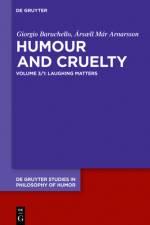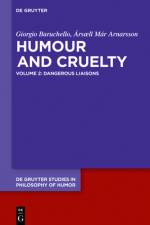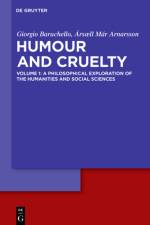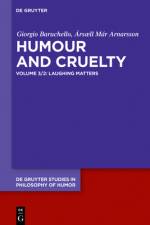av Giorgio Baruchello
1 989
Humor has been praised by philosophers and poets as a balm to soothe the sorrows that outrageous fortune's slings and arrows cause inevitably, if not incessantly, to each and every one of us. In mundane life, having a sense of humor is seen not only as a positive trait of character, but as a social prerequisite, without which a person's career and mating prospects are severely diminished, if not annihilated. However, humor is much more than this, and so much else. In particular, humor can accompany cruelty, inform it, sustain it, and exemplify it. Therefore, in this book, we provide a comprehensive, reasoned exploration of the vast literature on the concepts of humor and cruelty, as these have been tackled in Western philosophy, humanities, and social sciences, especially psychology. Also, the apparent cacophony of extant interpretations of these two concepts is explained as the inevitable and even useful result of the polysemy inherent to all common-sense concepts, in line with the understanding of concepts developed by M. Polanyi in the 20th century. Thus, a thorough, nuanced grasp of their complex mutual relationship is established, and many platitudes affecting today's received views, and scholarship, are cast aside. "Like Aristotle and Dewey, Arnarsson and Baruchello do not define their terms at the outset, but instead they relentlessly pursue the meanings of two ordinary words that everyone vaguely understads to arrive at a critical insight into the concepts these words represent, which are both disparate and interrelated." - Richard Marc Rubin, President, George Santayana Society




